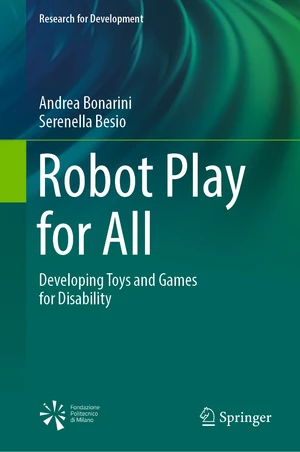This book presents a comprehensive guide to the design of playing robots and the related play experiences. Play is a natural activity for building and improving abilities, and it reveals important particularly for persons with disabilities. Many social, physical and cultural factors may hinder children with disabilities from fully enjoying play as their peers. Autonomous robots with specific characteristics can enhance the ludic experience, having implications for the character of the play and presenting opportunities related to autonomy and physical movement, the very nature of robots. Their introduction into play thus provides everybody, and in particular persons with disabilities, new possibilities for developing abilities, improving general status, participating in social contexts, as well as supporting professionals in monitoring progress.This book presents a framework for the design of playful activities with robots, developed over 20 yearsâ experience at AIRLab - POLIMI. Part 1 introduces the play concepts and characteristics, and research results about play of children with different kinds of impairments. Part 2 focuses on implementing robots able to play. The design of playful activities is discussed, as well as the necessary characteristics for them to be useful in both general play and activities involving disability-related limitations. In Part 3, the defined framework is used to analyze possibilities involving robots available on the toy market, robots developed at research labs, and robots to be developed in the next future. The aim of the book is to give developers, caregivers, and users a set of methodological tools for selecting, exploring, and designing inclusive play activities where robots play a central role.
Price history
Nov 6, 2022
€144.32

